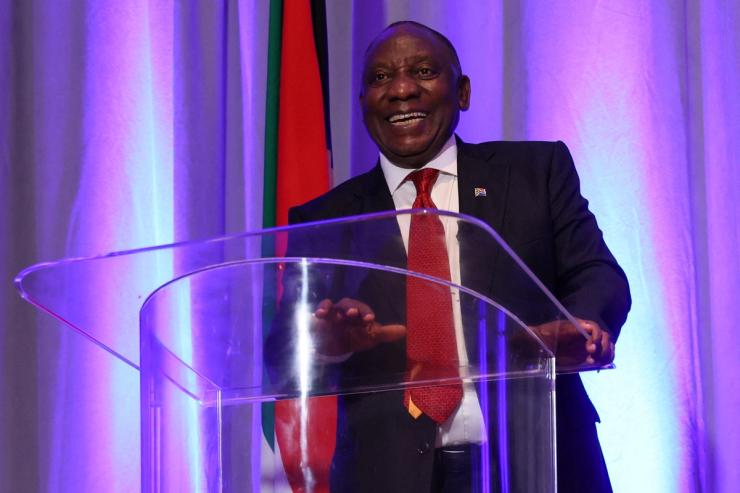Yinka’s view
South Africa’s government has had a tough few weeks on the world stage as it gears up for the G20 summit taking place here in Johannesburg this weekend — the first on the African continent. The dramatic withdrawal of the US and the no-show from China’s Xi Jinping has taken some of the shine off what was expected to be a triumphant week of global leadership for President Cyril Ramaphosa, and Africa in general.
But it has not all been for nothing. South Africa’s G20 leadership has raised the profile of key challenges facing the continent: In particular, rethinking how to ensure debt sustainability for low-income countries, and how to mobilize finance for a just energy transition. It’s clear Africa’s future is being squeezed by a mix of debt, climate pressure, and shrinking development finance options. Last year, 17 African nations watched money flow out faster than it came in, paying foreign creditors more than they received in new financing — a net drain on development.
Most Africans now live in countries that spend more on interest payments than on their health or education budgets, even as climate shocks are hitting harder and more often, battering crops, deepening hunger, and eroding human wellbeing.“South Africa has been very effective in raising awareness of the African debt crisis and its dire impact on African countries,” writes Danny Bradlow, a professor at University of Pretoria, and a senior G20 advisor to South Africa.
In this article:
Room for Disagreement
While Hannah Ryder of Development Reimagined agrees with the idea that South Africa has been successful in raising awareness around Africa’s debt priorities, she argues that the US withdrawal will still have a negative impact on the broader agenda. “Making African debt really cheap and long term — which is what African governments want, not even cancellation — is entirely plausible from a G20 perspective,” she said. “Reforming the IMF is entirely plausible — the US has a veto so can do it but the political will is totally lacking and unfortunately when the US sets an agenda such as “let’s make SA’s G20 presidency difficult”, many other G20 members go along with it without blinking.”
Notable
South Africa is pushing debt sustainability, green financing and disaster response before G20 summit.


